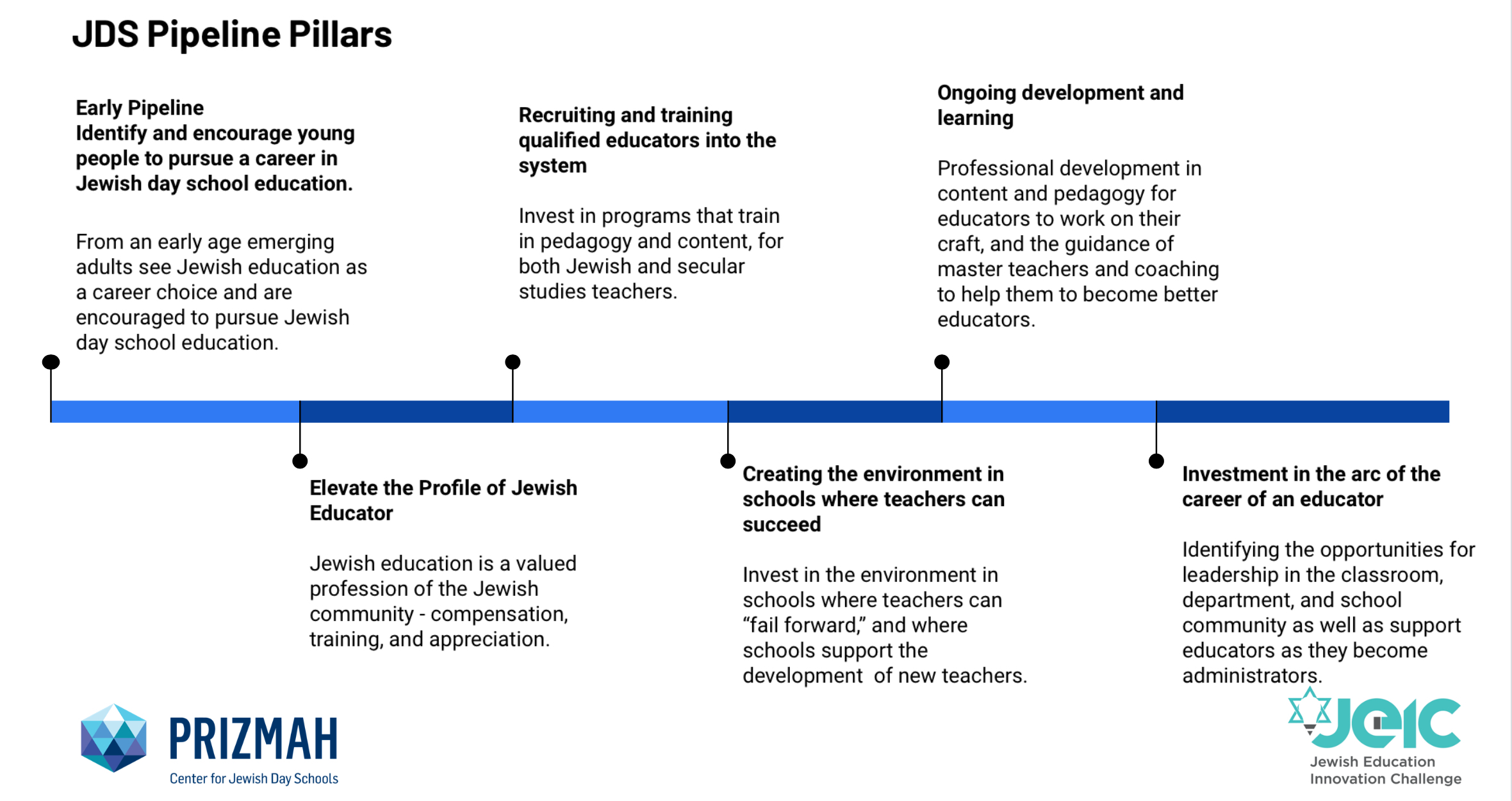At Prizmah and Jewish Education Innovation Challenge (JEIC), we hold two central beliefs about our Jewish day schools and yeshivas:
- Jewish day school education is valuable, if not critical, for a strong Jewish present and future.
- The strength of Jewish education in day schools is built on a strong foundation of talented, trained and dedicated educators who are steeped in the content they are teaching and their pedagogies.
For our collective investment in the vibrancy of Jewish life, and even in our most difficult and challenging times, we believe that the strength of our Jewish education will ultimately sustain North American Jewish life and contribute to world Jewry.
As we recently learned in our communal educational seminar known as the Passover Seder, in every generation we must see ourselves as if we ourselves have left Egypt. Each generation revisits the Exodus and not just tells the story, but experiences the wonders and the struggles of previous generations.
In every generation our Jewish communal leaders ring the alarm bells that we are not doing enough to ensure that we have a strong pipeline of talent. In every generation—and now in ours—we learn from that history and develop our response to the Jewish educator challenge. What ideas and learnings can we revisit from the previous generation? How does our current context change our proposed solutions? What will be our call to action?
A Partnership for Progress
Prizmah and JEIC joined forces over the past year and a half to explore just this question. We launched a think tank and gathered 25 Jewish day school stakeholders—educators, funders and other Jewish professionals—and convened six working groups. They were tasked with assessing the current state of the teaching pipeline, exploring realistic options to address the problem and drafting a handful of high-impact initiatives. Aside from the two main deliverables—a summary report and a playbook for possible projects (to be released soon)—we surfaced some principles that everyone in Jewish day schools—faculty members, parents, lay leadership and donors—should understand in order to address the issue of lack of trained and dedicated educators. We owe a huge debt of gratitude to the three funders who enabled this project: the Mayberg Foundation, Dr. Shmuel and Evelyn Katz, and Melissa Kushner and Jeremy Kaplan.
Defining our Scope
There are a number of metaphors that we use when we talk about the educator pipeline. Rona Novick, dean of the Azrieli Graduate School of Jewish Education at Yeshiva University and a member of the working group, speaks often about “growing the garden” of educators. We need to recognize that educators don’t just spring up, but they must first have fertile soil; we should create the best environment for those educators to grow. Then care in planting seeds and nourishing growth come well before we can expect fully grown educators.
That set the context for where our work on the pipeline began. We believed that the pipeline starts by identifying potential talent in their youth—in high schools, youth groups, camps and other early pipeline environments. Early pipeline became the first of six committees described in the Report on the Prizmah-JEIC Educator Pipeline Working Group. Recruitment and training, creating the environment for success, ongoing development and learning, and investing in the career arc of a Jewish day school educator are four of the core pillars focused on training and careers. Each one was its own committee.
Our sixth and last committee focused on elevating the profile of Jewish day school educators, the foundation on which we believed that any initiative will succeed or fail. Conversations in this committee ranged from compensation and benefits to respect, work-life balance, working environment and our communal conversations of how we talk about our teachers and educators. Not surprisingly, many of these areas are ones that impact teacher retention in schools.







